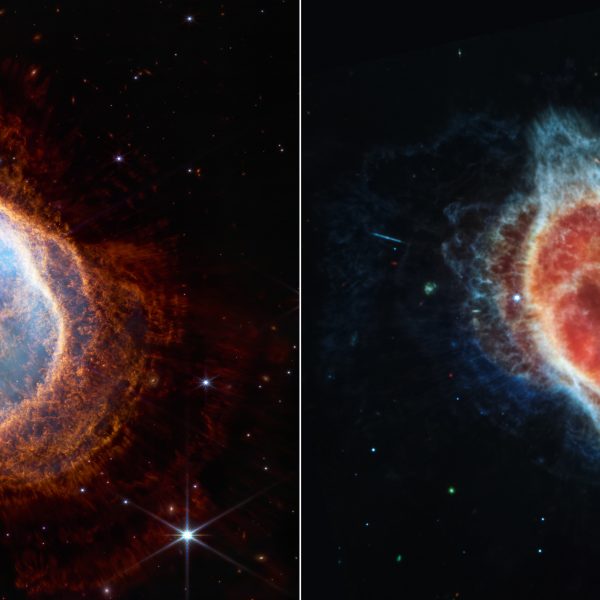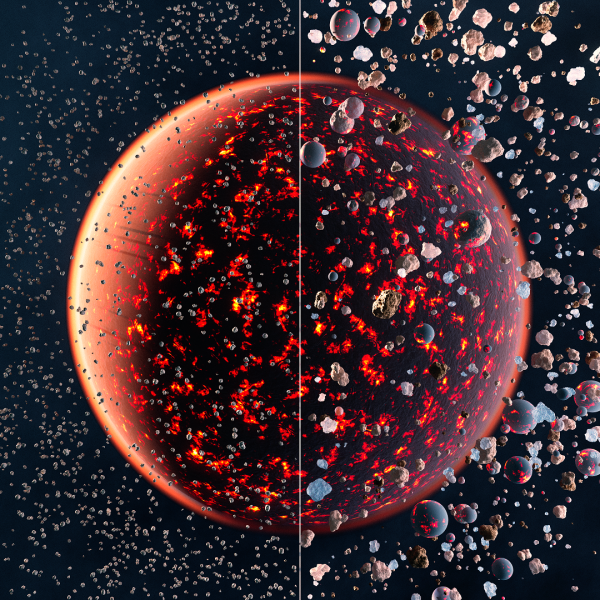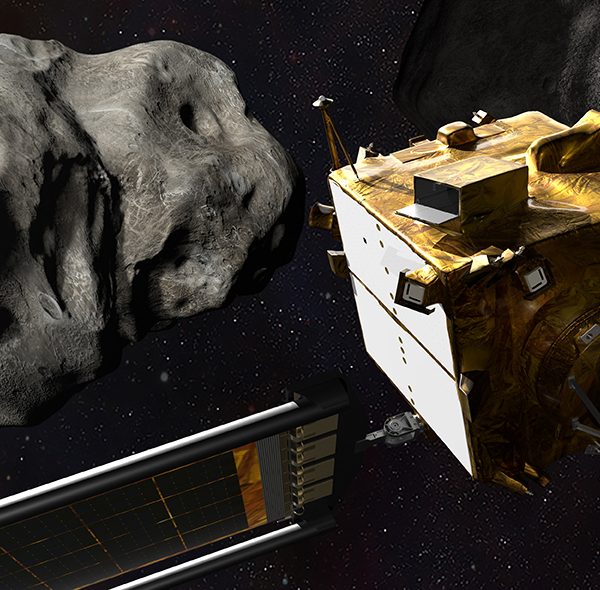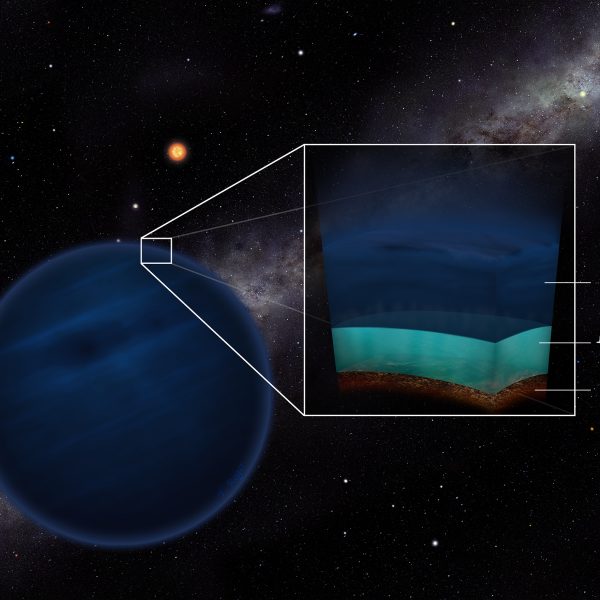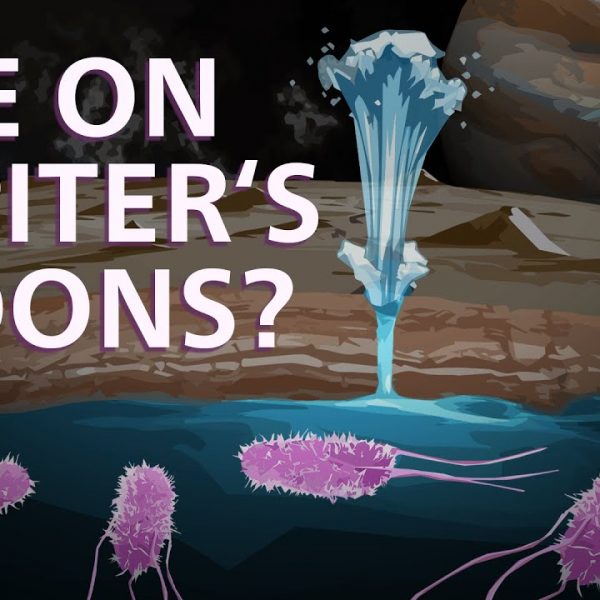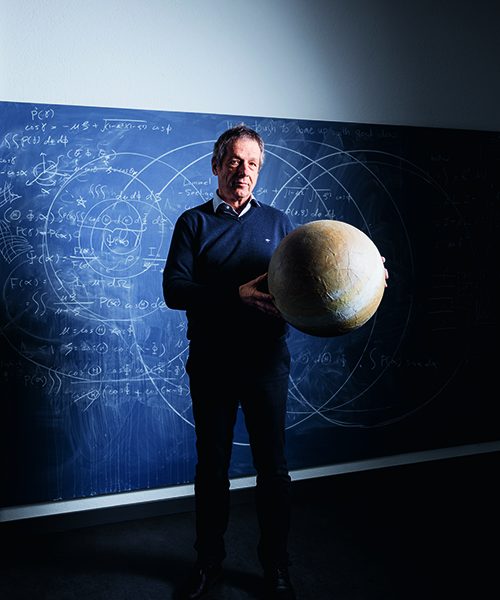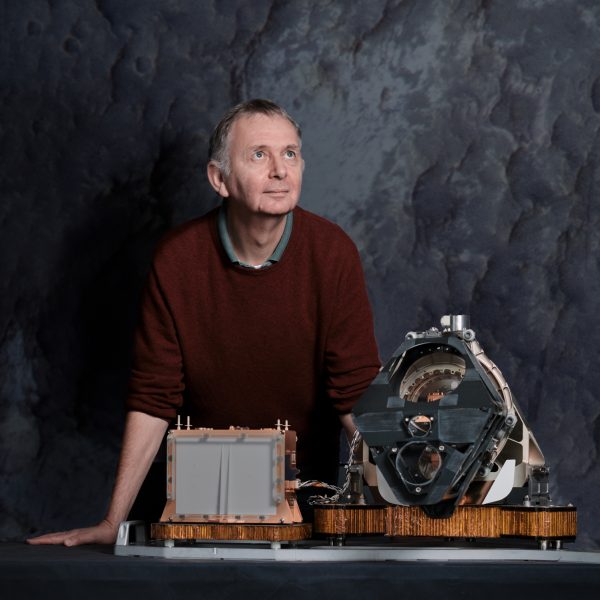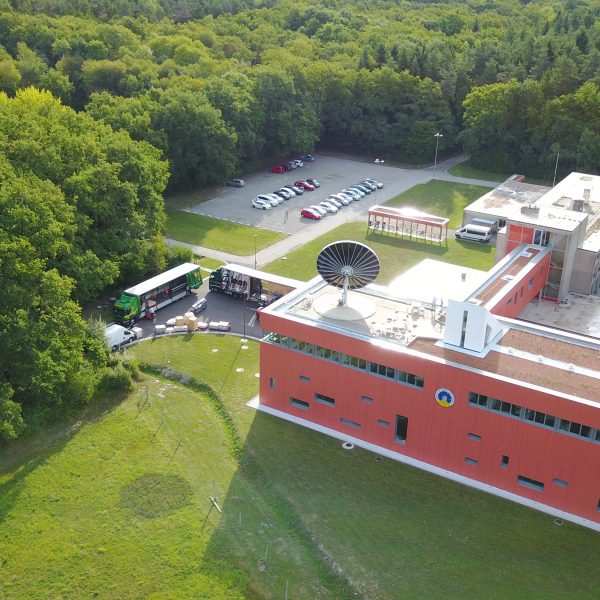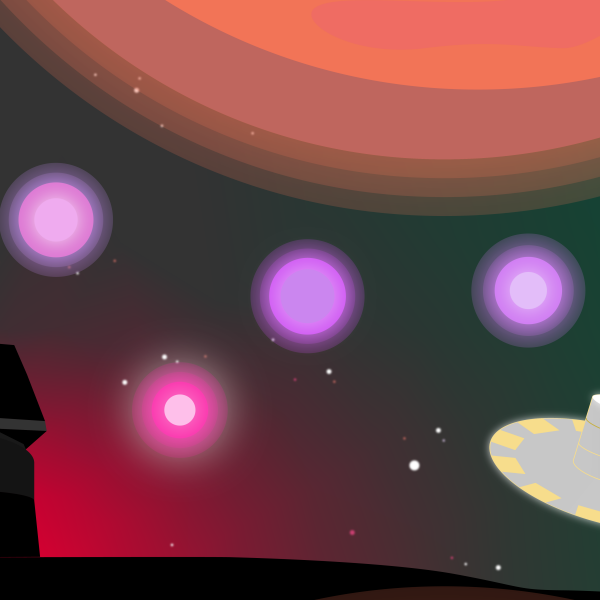News
Swiss space community celebrates initiation of James Webb Space Telescope
The consortium of the North American (NASA), European (ESA) and Canadian (CSA) space agencies released a series of first images of the James Webb Space Telescope (JWST) on Tuesday. Swiss contributors from academia, government and industry gathered at the International Swiss Space Institute (ISSI) in Bern to inform about their contributions and projects related to […]
Continue ReadingNew insights into the formation of the Earth
An international team of researchers, led by the ETH Zurich and the National Centre of Competence in Research (NCCR) PlanetS, suggests a comprehensive new theory for the formation of Earth. Their results could also help to understand how other rocky planets formed – in the Solar System and elsewhere. The Earth has been studied for […]
Continue ReadingBernese researchers simulate defense of the earth
NASA’s Double Asteroid Redirection Test (DART) mission is the world’s first full-scale planetary defense test against potential asteroid impacts on Earth. Researchers of the University of Bern and the National Centre of Competence in Research (NCCR) PlanetS now show that instead of leaving behind a relatively small crater, the impact of the DART spacecraft on […]
Continue ReadingLong-term liquid water also on non-Earth-like planets?
Liquid water is an important prerequisite for life to develop on a planet. As researchers from the University of Bern, the University of Zurich and the National Centre of Competence in Research (NCCR) PlanetS report in a new study, liquid water could also exist for billions of years on planets that are very different from […]
Continue ReadingThe University of Bern flies to Jupiter
The JUICE space mission of the European Space Agency ESA is scheduled to fly to Jupiter in spring 2023 where it is to look for traces of life in three icy moons. The University of Bern is involved in this endeavor as well, amongst others with the NIM mass spectrometer, which is presented in a […]
Continue Reading“You have to be patient and persistent.”
The discovery of the first planet outside our solar system in 1995 gave an enormous boost to planetary research and the search for Earth-like planets. With the National Centre of Competence in Research (NCCR) PlanetS, which brings together researchers from the Universities of Bern, Geneva and Zurich and ETH Zurich, Switzerland is at the forefront […]
Continue ReadingThe man with the instruments in space
Nicolas Thomas wants to understand Mars, comets and the icy moons of Jupiter. To do so, he builds instruments that fly through space on of board space probes. By Brigit Bucher When asked how he came up with the idea of becoming an astrophysicist, the answer comes lightning-fast: “Quite clearly: because of the first moon […]
Continue ReadingOpen Days at the Observatory of Geneva
The Observatory of Geneva celebrates its 250th anniversary with a year of activities for the public between June 2022 and June 2023. To launch these festivities, the Observatory of Geneva opens its doors for a special weekend on 18th and 19th June 2022. Come and discover the researchers of the astronomy department of the University […]
Continue ReadingGround-breaking number of brown dwarf companions discovered
Brown dwarfs, mysterious objects that straddle the line between stars and planets, are essential to our understanding of both stellar and planetary populations. However, only 40 brown dwarfs could be imaged around stars in almost three decades of searches. An international team led by researchers from the Open University and the University of Bern directly […]
Continue Reading
